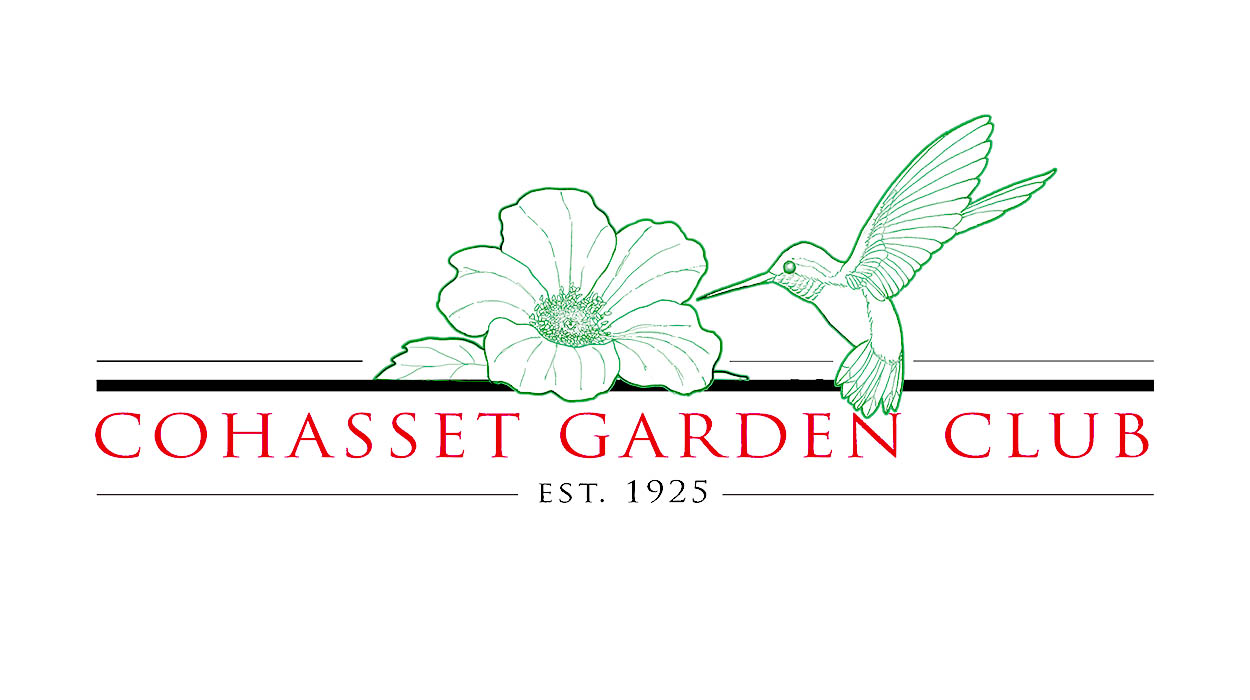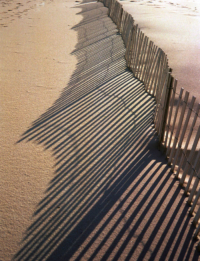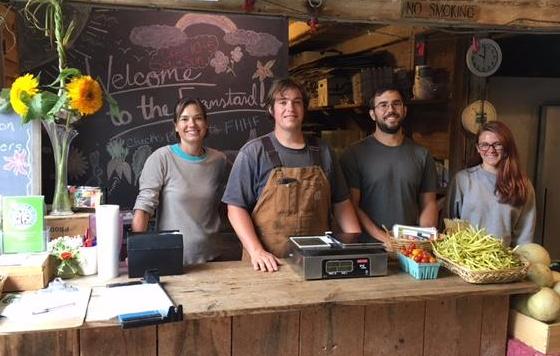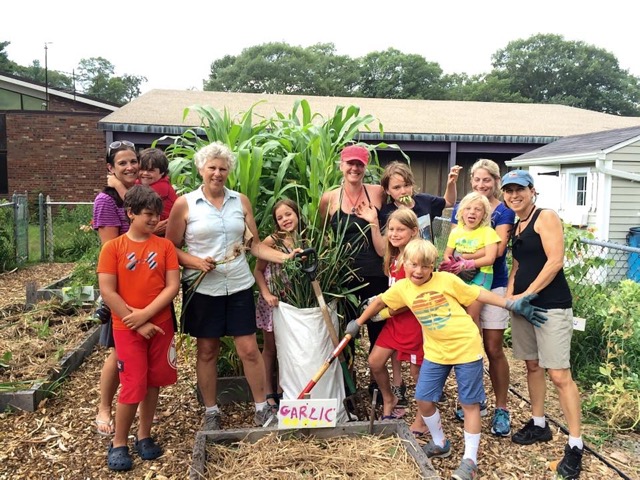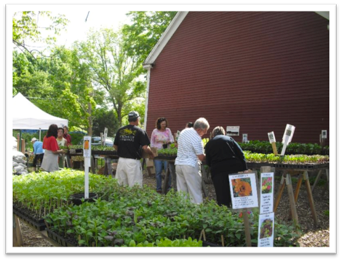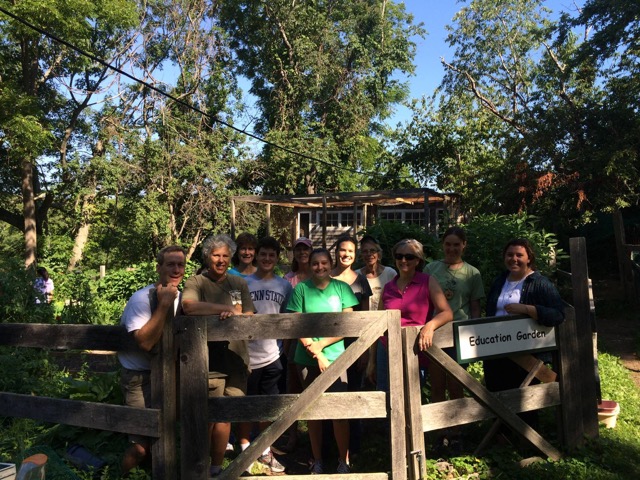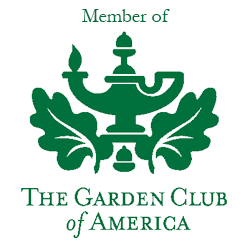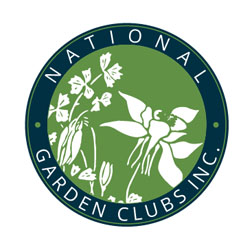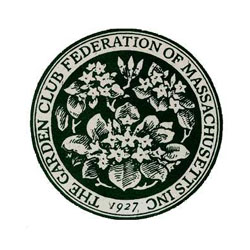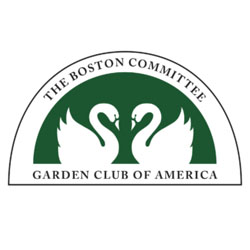Focused on the Environment
The Cohasset Garden Club has focused on conservation since its earliest years, adhering to its mission to restore, improve, and protect the quality of the environment through educational programs and action in the fields of conservation and civic improvement.
In keeping with our goal to protect the quality of the environment through educational programs the Club has a Conservation speaker at our public meeting every year. In addition, we have created and executed a number of extensive Conservation education projects for the Town.
Club Conservation projects have included:
Researching and producing a Green Resource Guide for the club and the larger community. Green as in local, natural, sustainable, innovative and organic. Local resources ran the gamut from information about local farms producing beef, cheese, vegetables, and honey; sources for baby and children’s safe and innovative products; and contact information for LEED certified architects. It also contained an extensive Green Glossary and a What You Should Know paragraph in every section.
Creating and establishing an annual “Bee a Pollinator Pal” education week for the second grade class of Cohasset’s Osgood School. The week long program begins with a full grade assembly during which the South Shore Natural Science Center provides students with an overview of pollination and its importance to the reproduction of plants.
Throughout the week, the Cohasset Garden Club provides students with in-class pollinator educational activities. Mid-week, each class gathers around the organic pollinator garden where students learn about the development of the garden, the importance of each plant within the garden to pollinators, and the important life above and below ground that supports the health of the plants. This includes “planting” earthworms in the garden every year. The week culminates with a butterfly release.Participation in the Garden Club of America’s Garden History & Design Program in which very special Cohasset Garden Club’s members’ gardens are researched, documented and photographed for the Archives of American Gardens at the Smithsonian Institution.
Selecting and planting native trees on the Town’s Common.
Our Annual Public Meeting always includes a Conservation speaker. This year it will be Diane Lewis, founder of the The Great Healthy Yard Project, who will speak about the serious health dangers posed by the use on our lawns of synthetic pesticides, weed killers and chemical fertilizers to drinking water and habitats for native plants and wildlife. She will discuss alternative ways to take care of our lawns without the use of harmful chemicals. Please refer to the announcement box on this page or see our Public Meetings page for full details including date and time. Examples of past Conservation speakers have included: Theo Koboski from the Ocean Conservancy, speaking about climate change and the effect on the ocean and David Pendergast from Agora Greens, who spoke about growing “leafy greens” inside a recycled 40’ shipping container that has been retro fitted into a high production and high technology growing machine; and Paul Tukey of Safe Lawns whose mission is to create a broad-based coalition of not-for-profit and for-profit organizations committed to educating society about the benefits of environmentally responsible lawn care and gardening, with the goal of effecting a quantum change in consumer and industry behavior.
The Cohasset Garden Club also sends members as delegates to the Garden Club of America’s annual National Affairs and Legislation conference in Washington, D.C. The conference features two days of speakers on conservation issues of national importance, including leaders of conservation nonprofits and congressmen and women from both sides of the political aisle. Presentations focus on important topics related to the GCA’s Position Papers on conservation issues. On the final day of the conference, delegates meet with their Senators and Representatives to lobby on behalf of the GCA’s positions on these issues.
Local Conservation Organizations
Cohasset Center for Student Coastal Research (CSCR):
www.ccscr.orgCohasset Conservation Trust:
www.cohassetconservationtrust.org
“Land Preservation & Conservation Since 1967”Garden Club of America Conservation Committee:
www.gcamerica.org/index.cfm/members/committees-conservationGarden Club of America National Affairs & Legislation Committee:
https://www.gcamerica.org/index.cfm/members/nalHingham Land Conservation Trust:
www.hinghamlandtrust.orgHolly Hill Farm:
www.hollyhillfarm.org/farm-stand/Manomet:
www.manomet.org
“Soaring Solutions. Grounded Science.”Massachusetts Department of Conservation and Recreation:
www.mass.gov/eea/agencies/dcr/
Mass Audubon:
www.massaudubon.org
Daniel Webster Sanctuary (Marshfield)Maxwell Conservation Trust (Scituate):
www.maxwellconservationtrust.org
“Preserving Open Space For All”The Nature Conservancy:
www.nature.org
“Conserving the lands & waters on which all life depends.”Trustees of Reservations:
www.thetrustees.org
Whitney and Thayer Woods; World’s End; Norris ReservationWild Cohasset:
www.wildcohasset.org
“Bringing native plants back to our wild spaces”Wildlands Trust:
www.wildlandstrust.orgWompatuck State Park:
www.mass.gov/locations/wompatuck-state-park
